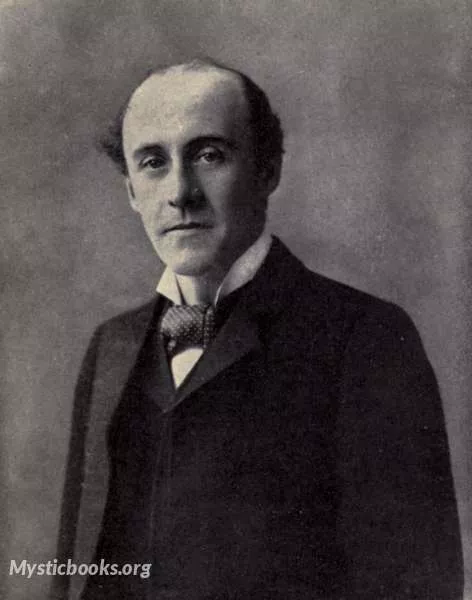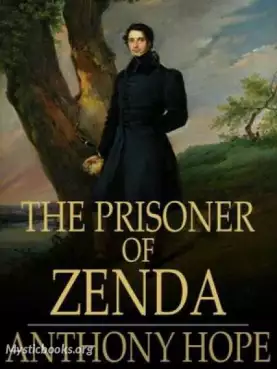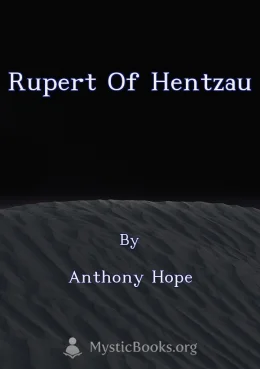
Timeline
Title
Country/Nationality
Anthony Hope
Sir Anthony Hope Hawkins, better known as Anthony Hope was a British novelist and playwright. He was a prolific writer, especially of adventure novels but he is remembered predominantly for only two books: The Prisoner of Zenda (1894) and its sequel Rupert of Hentzau (1898). These works, "minor classics" of English literature, are set in the contemporaneous fictional country of Ruritania and spawned the genre known as Ruritanian romance, books set in fictional European locales similar to the novels. Zenda has inspired many adaptations, most notably the 1937 Hollywood movie of the same name and the 1952 version.
Hope was educated at St John's School, Leatherhead, Marlborough College and Balliol College, Oxford. Hope trained as a lawyer and barrister, being called to the Bar by the Middle Temple in 1887. He served his pupillage under the future Liberal Prime Minister H. H. Asquith, who thought him a promising barrister and who was disappointed by his decision to turn to writing.
In 1893 he wrote three novels (Sport Royal, A Change of Air and Half-a-Hero) and a series of sketches that first appeared in The Westminster Gazette and were collected in 1894 as The Dolly Dialogues, illustrated by Arthur Rackham. Dolly was his first major literary success. A. E. W. Mason deemed these conversations "so truly set in the London of their day that the social historian would be unwise to neglect them," and said that they were written with "delicate wit [and] a shade of sadness."
Hope wrote 32 volumes of fiction over the course of his lifetime and he had a large popular following. In 1896 he published The Chronicles of Count Antonio, followed in 1897 by a tale of adventure set on a Greek island, entitled Phroso. He went on a publicity tour of the United States in late 1897, during which he impressed a New York Times reporter as being somewhat like Rudolf Rassendyll: a well-dressed Englishman with a hearty laugh, a soldierly attitude, a dry sense of humour, "quiet, easy manners", and an air of shrewdness.
In 1898, he wrote Simon Dale, a historical novel involving actress and courtesan Nell Gwyn. Marie Tempest appeared in the dramatisation, called English Nell. One of Hope's plays, The Adventure of Lady Ursula, was produced in 1898. This was followed by his novel The King's Mirror (1899), which Hope considered one of his best works; and Captain Dieppe (1899). In 1900, he published Quisanté and he was elected chairman of the committee of the Society of Authors. He wrote Tristram of Blent in 1901, The Intrusions of Peggy in 1902, and Double Harness in 1904, followed by A Servant of the Public in 1905, about the love of acting.
In 1906, he produced Sophy of Kravonia, a novel in a similar vein to Zenda which was serialised in The Windsor Magazine; Roger Lancelyn Green is especially damning of this effort.[12] Nevertheless, the story was filmed twice, in Italy in 1916 as Sofia De Kravonia, and in the United States in 1920 as Sophy of Kravonia or, The Virgin of Paris. Both adaptations featured the actress Diana Karenne in the title role (billed as "Diana Kareni" in the latter film).
In 1907, a collection of his short stories and novelettes was published under the title Tales of Two People; as well as the novel Helena's Path. In 1910, he wrote Second String, followed by Mrs Maxon Protests the next year.
Hope wrote and co-wrote many plays and political non-fiction during the First World War, some under the auspices of the Ministry of Information. Later publications included The Secret of the Tower, and Beaumaroy Home from the Wars, in 1919 and Lucinda in 1920. Lancelyn Green asserts that Hope was "a first-class amateur but only a second-class professional writer.
Hope married Elizabeth Somerville (1885/6–1946) in 1903 and they had two sons and a daughter. He was knighted in 1918 for his contribution to propaganda efforts during World War I. He published an autobiographical book, Memories and Notes, in 1927. Hope died of throat cancer at the age of 70 at his country home, Heath Farm at Walton-on-the-Hill in Surrey. There is a blue plaque on his house in Bedford Square, London.
Books by Anthony Hope

The Prisoner of Zenda
The Prisoner of Zenda is an 1894 adventure novel by Anthony Hope, in which the King of Ruritania is drugged on the eve of his coronation and thus is unable to attend the ceremony. Political forces within the realm are such that, in order for the king...

Rupert of Hentzau
This is the sequel to 'The Prisoner of Zenda'. Five years have passed. The King has become jealous of Rudolf Rassendyll and suspicious of the queen (Flavia)'s feelings towards him. Flavia decides that this must be the last year in which she sends to...

Chronicles of Count Antonio
Chronicles of Count Antonio is a historical novel by Anthony Hope, first published in 1896. It is set in 15th-century Italy and tells the story of Count Antonio, a nobleman who renounces his titles and becomes an outlaw in order to fight for the righ...

Lucinda
In 1914 London, Lucinda, the bride-to-be, vanishes on her wedding day. Her fiancé, Waldo, is left heartbroken and bewildered. A note from Lucinda, hinting at an Italian gentleman, leaves him searching for answers. The outbreak of the First World War...

prisionero de Zenda
The Prisoner of Zenda is a classic adventure novel set in the fictional kingdom of Ruritania. It follows the story of Rudolf Rassendyll, an English gentleman who bears a striking resemblance to the King of Ruritania. When the King is kidnapped, Rasse...

Comedies of Courtship
Anthony Hope's *Comedies of Courtship* is a collection of charming short stories that delve into the complexities of love and the intricate dance of courtship. Hope's witty observations and gentle satire offer a glimpse into Victorian social customs,...